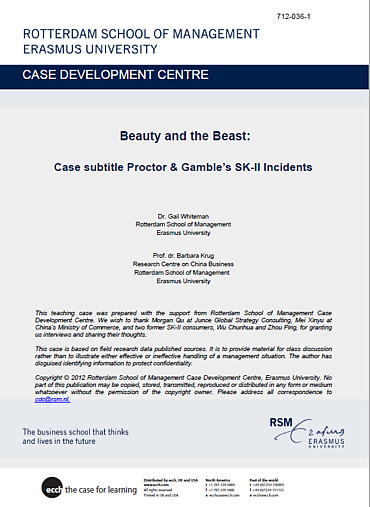Abstract
SK-II is an exemplary case for demonstrating the power of institutional dynamics on foreign firm legitimacy even though the SK-II crises may, at first glance, appear to be a somewhat trivial case about the ugly side of beauty products (and the possible existence of toxic metals in skin care creams.) The case illustrates how Chinese institutions allow state agencies to actively resist “foreign” products by presenting test results in negative ways. It shows that institutions matter – a firm’s CSR legitimacy is actively shaped by institutional dynamics beyond its control and immediate sphere of reference.
Citation Note
Based on published sources; 16 pages.
Follow the 'handle' link to access the Case Study on RePub.
For EUR staff members: the Teaching Note is available on request, you can contact us at rsm.nl/cdc/contact/
For external users: follow the link to purchase the Case Study and the Teaching Note.
Objective
1. To understand the importance of institutions in determining social responsibility of foreign firms in China; 2. To examine how dynamic institutional actors such as the state, media and consumers continually shape and challenge the very definition of what is socially responsible behavior, based not just on firm behavior but on the broader context; 3. To examine how firms need to distinguish between global and local institutional setups and respond accordingly.
